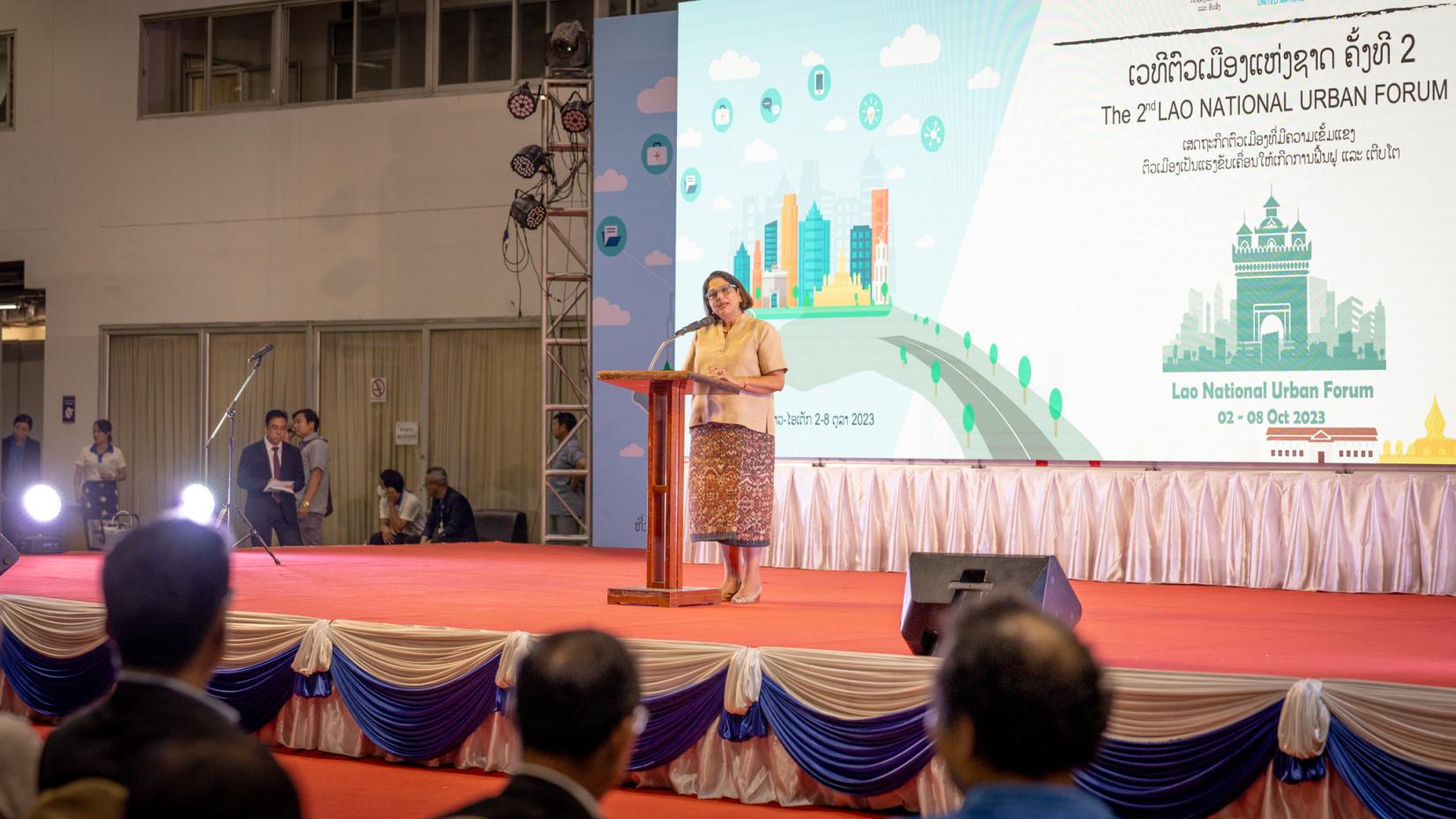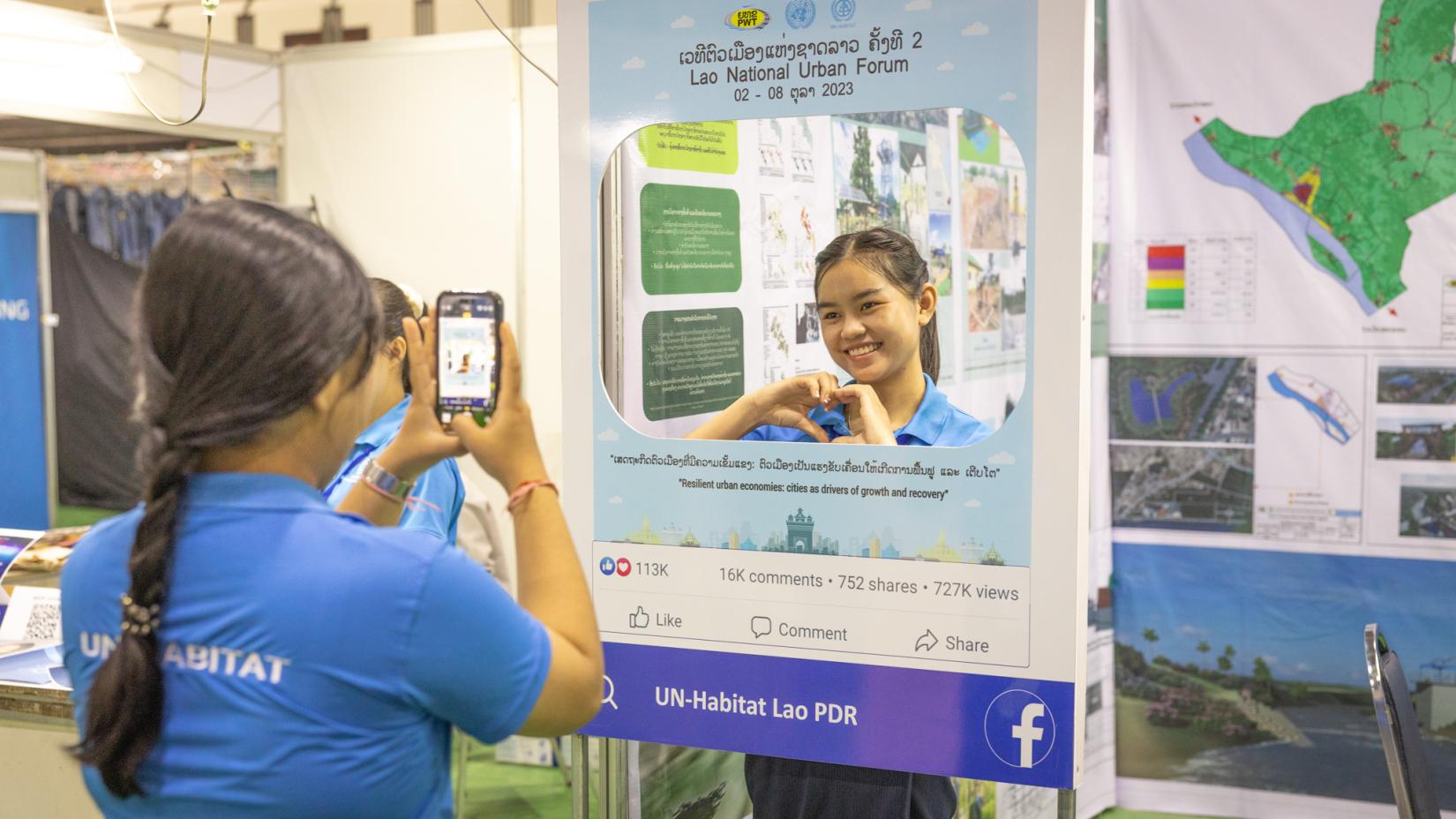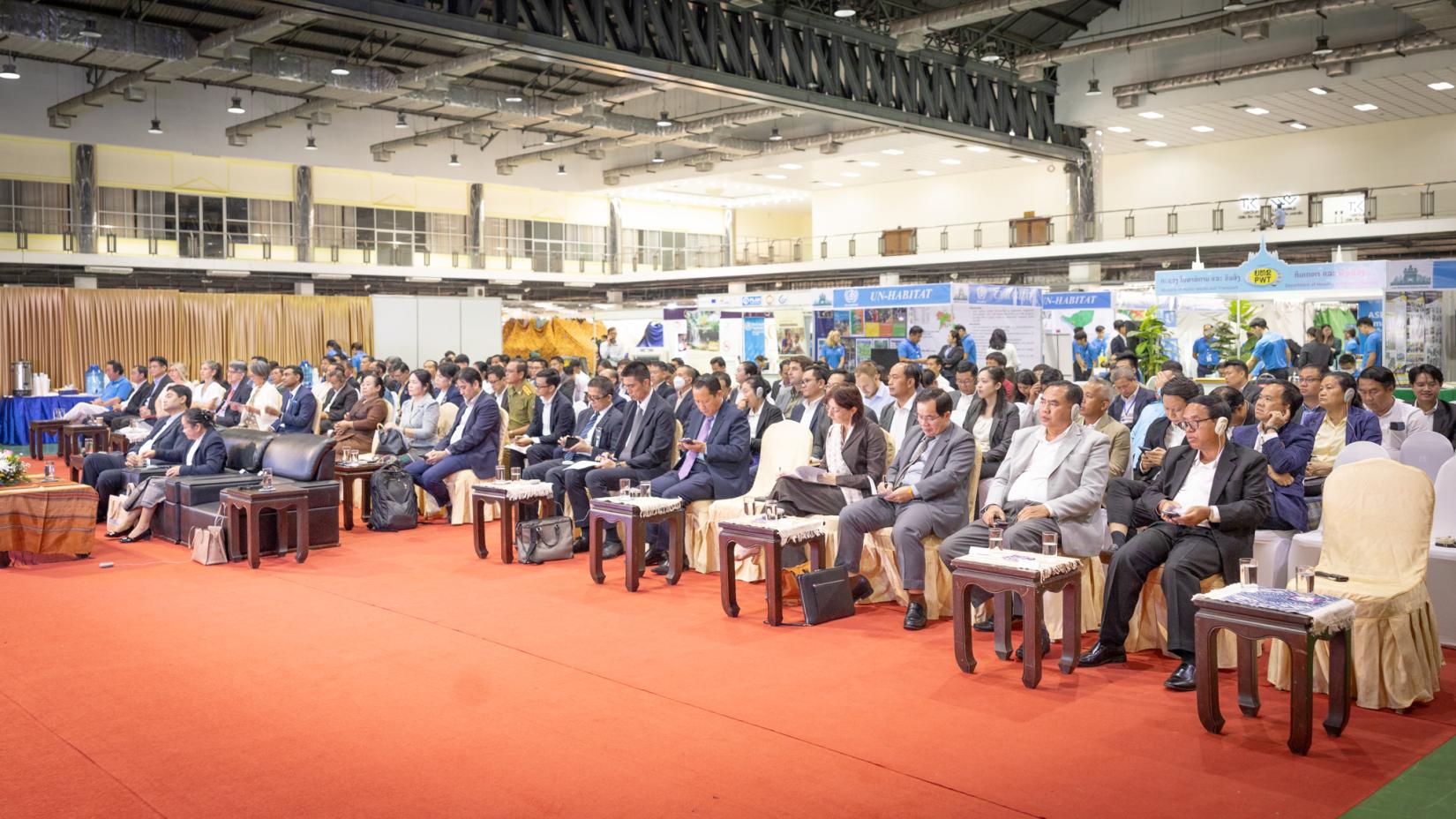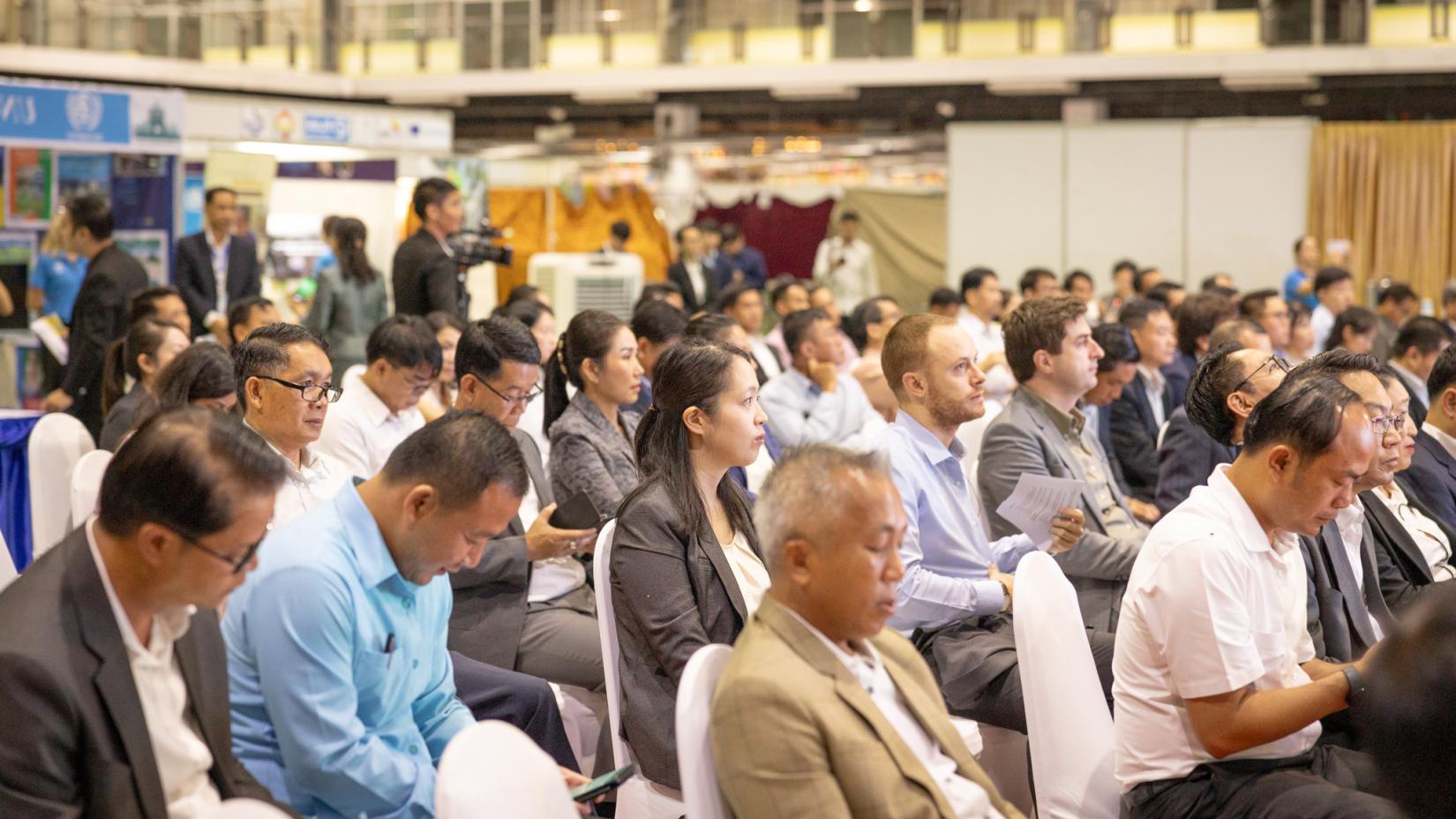Opening Remarks at the 2nd Lao National Urban Forum
Opening Remarks at the 2nd Lao National Urban Forum
Resident Coordinator a.i.
Monday, 2nd October 2023, Vientiane, Lao PDR
Venue: ITECC




Excellency Minister,
Government officials,
Representatives from cities,
Representatives from civil society,
Representatives from development partners,
Distinguished participants.
It is my great honour to deliver remarks at the Second Lao National Urban Forum, themed "Resilient Urban Economies: Cities as Drivers of Growth and Recovery."
I commend the extraordinary efforts into organising the forum as a week-long event and extend my deepest appreciation to everyone who has contributed to the planning. This is a testament to the commitment of all parties involved, under the leadership of the Ministry of Public Works and Transport (MPWT) in collaboration with UN-Habitat and numerous partners.
A seven-day forum provides a rare opportunity for in-depth discussions, collaboration, and the exploration of innovative solutions to urbanization's complex challenges. It exemplifies our shared commitment to comprehensively address critical issues surrounding resilient urban economies, ensuring that every aspect of this vital topic is thoroughly examined and all participants' voices are heard and respected.
As we begin this forum, let us consider the journey that brought us here. We convened the Lao National Urban Forum for the first time last year, a significant step in recognizing the significance of strategic urban planning. Today, we will delve deeper into the vital role that our cities play in fostering resilient economies.
Permit me to elaborate on why this topic is crucial to our shared vision.
Distinguished participants, the Lao People's Democratic Republic has a unique urbanization profile, where rapid urbanization coexists with predominantly rural environments. Over half of the nation's population will reside in urban areas within a decade. This transformative trend will influence not only our cities, but also the lives of our citizens.
With profound change come both obstacles and opportunities. Today, I would like to highlight three critical challenges pertinent to our discussions:
- The Difficulty of Planning: Unrestrained urbanization poses inherent dangers, including environmental degradation and possibly rising crime rates. Well-planned and managed cities can serve as centers of innovation, economic expansion, and enhanced quality of life. With its emphasis on urban planning and sustainability, the New Urban Agenda provides a relevant framework for our voyage. I commend the Lao People's Democratic Republic for being the first country in the Asia-Pacific region to submit a report on the implementation of this agenda.
- The Challenge of Inclusivity: Effective urban planning requires the participation of all stakeholders across all sectors and mandates. It is not the sole responsibility of a single Ministry, but necessitates coordination between Ministries. Furthermore, it is essential that urban planning at the local level involve the active participation of communities. I am encouraged to see such a wide spectrum of participants today, and I encourage local authorities to create forums where citizens, experts, and decision-makers can shape the future of their cities together.
- The challenge of Not Leaving Anyone Behind: Rapid urbanization, such as that experienced by Lao PDR, is frequently accompanied by rural-to-urban migration. While this migration bears the promise of economic opportunity and improved living conditions, it also imposes the imperative duty to ensure that no one is left behind in the process. During this transition, vulnerable groups such as slum dwellers, people with disabilities, and women may encounter unique obstacles. Our collective responsibility is to design urban policies and interventions that prioritize their needs, provide access to essential services, and foster an environment in which rural-urban migrants can actively participate in and contribute to the development of our cities. LNOB is not merely a principle; it is a beacon that reminds us of our dedication to social justice and equity as we navigate the complexities of urbanization.
Distinguished participants, these significant challenges arise when the Lao People's Democratic Republic, like much of the world, is coping with a complex crisis. Current challenges, such as the "4F crisis" (food, fertilizer, fuel, and financing), the need for sustainable financing, and the urgency of confronting climate change and environmental degradation, highlight the significance of resilient urban economies.
In spite of these obstacles, I commend the Government of the Lao People's Democratic Republic for adopting proactive measures, including the approval of the 9th NSEDP Financing Strategy, which can contribute to the financing of planned urbanization on a sustainable basis.
Our cities can relieve ecosystem pressure, reduce emissions, and incorporate verdant spaces and biodiversity. By becoming more resilient, sustainable, and pollution-free, cities – currently responsible for 75% of global emissions – can be where climate change and other global challenges are overcome.
Lao PDR has great opportunity to strengthen the resilience of critical infrastructure, including buildings, transportation networks, communication systems, and healthcare facilities. This necessitates the incorporation of disaster risk reduction measures into infrastructure planning and construction, adherence to building codes and standards, and the promotion of resilient materials and designs. By investing in resilient infrastructure, we can mitigate the impact of disasters and facilitate quicker recovery.
As we embark on this critical journey of shaping our urban future, we must keep in mind the global commitment we've made to the Sustainable Development Goals. The SDGs provide a universal framework for addressing the world's most pressing challenges: poverty reduction, gender equality, climate action, and sustainable cities and communities. Our discussions here are about urbanization in isolation and aligning our efforts with these broader global goals. By advancing our cities as drivers of growth and recovery, we contribute to local prosperity and the achievement of these global aspirations.
Distinguished participants, the road ahead may appear daunting, but I am confident that we can capture opportunities and mitigate risks by working together. Your presence here today signifies an important step toward planned, inclusive, environmentally friendly, climate-resilient urbanization that leaves no one behind.
Thank you very much.








